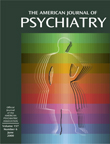Dr. DeRubeis and Ms. Gelfand Reply
Our report was more a reaction to treatment guidelines that have been based on scant data than a definitive statement about how specific patients with depression should be treated. In his letter, Dr. Taylor emphasizes important issues about the generalizability of conclusions that can be drawn from any review of empirical research, including our mega-analysis. Specifically, one should not haphazardly generalize our findings to antidepressant medications or doses that were not used in the studies we reviewed, nor should one blithely generalize our findings to all depressed patients. As clinicians, our job is to combine the most relevant research findings with our clinical experience and knowledge of available resources to make the best decision we can about how to proceed in a given case. Indeed, ongoing studies of cognitive behavior therapy versus medication treatment will inform us in the future regarding some of the more specific circumstances that Dr. Taylor describes (e.g., depression subtypes and patient ages).
Until such time, we hope that clinicians will bear in mind the findings summarized in our report. In our mega-analysis, based on four major studies that compared antidepressant medications and cognitive behavioral therapy in the acute treatment of severely depressed outpatients, we found equivalent performance of these two treatment modalities. As for Dr. Taylor’s specific concerns, first, especially with severe or melancholic depression, the evidence suggests that tricyclic antidepressants such as those used in the four studies reviewed are at least as potent as other classes of antidepressants, including selective serotonin reuptake inhibitors (1). Second, we understand that there are many ways to define severe depression. As our aim was to present data germane to existing treatment guidelines, we applied the criteria used in those guidelines. Moreover, despite the original investigators’ attempts to find interactions of treatment and subtype in the data sets of the four studies reviewed, there is virtually no empirical evidence for the presumed superiority of medication treatment over cognitive behavioral therapy in patients with melancholic depression or in any subgroup of depressed patients for that matter. As for the 60-plus-year-old man with classic melancholic symptoms, we have observed that many such patients benefit greatly from well-delivered cognitive behavioral therapy, just as they do from well-managed antidepressant medication regimes.
1. Perry PJ: Pharmacotherapy for major depression with melancholic features: relative efficacy of tricyclic versus selective serotonin reuptake inhibitor antidepressants. J Affect Disord 1996; 39:1–6Crossref, Medline, Google Scholar



